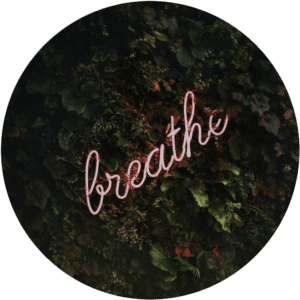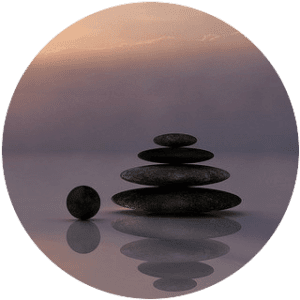Hi! Thank you so much for your insightful comment! I really appreciate your perspective as a mindful educator and meditation…

How To Positively Change Your Life With Meditation Every Day
“The more tranquil a man becomes, the greater is his success, his influence, his power for good.” – James Allen
Meditation is most commonly associated with monks, mystics, and other spiritual disciplines. However, you don’t have to be a monk or mystic to enjoy its benefits. And you don’t even have to be in a special place to practice it. Meditation is when your body and mind are consciously relaxed and focused. But can you positively change your life with meditation every day? Practitioners of this art report increased awareness, focus, concentration, and a more positive outlook on life.
What Is Meditation?
“Mediation means dissolving the invisible walls that unaware has built” – Sadhguru
 Meditation could be any process or abstinence that brings the mind into contact with the inner self so that a sense of inner peace and fulfillment ensues. Three aspects constitute the basis of most meditation techniques:
Meditation could be any process or abstinence that brings the mind into contact with the inner self so that a sense of inner peace and fulfillment ensues. Three aspects constitute the basis of most meditation techniques:
1. The first step is relaxation or surrendering of the body and mind so that the mind is not cluttered with various unrelated and disturbing thoughts.
2. The second is concentration on a limited area of mental focus to begin to control and direct the mind towards the chosen “object” of attention.
3. The third stage is the eventual transcendence of the mind, thoughts, and all identification with the body and personality. We then enter into a state of super-mental union with divine consciousness.
Ordinarily, our minds are constantly preoccupied with feelings, ideas, thoughts, sounds, sights, tastes, and sensual experiences. One moment we are happy; the next moment, sadness flows through us. Life is a continuous flow of moods, thoughts, and perceptions.
The Power Of Meditation
“Quiet the mind and the soul will speak.” – Ma Jaya Sati Bhagavati
 There are numerous physical and psychological benefits to meditation. As the body rests, the heart rate lowers, as does the metabolic rate, and stress dramatically decreases. Adverse physical and physiological stress-related reactions are reduced or eradicated. Concentration increases and memory is improved. Additionally, anxiety, depression, moodiness, and irritability decreased while feelings of vitality, happiness, rejuvenation, and emotional stability enhanced.
There are numerous physical and psychological benefits to meditation. As the body rests, the heart rate lowers, as does the metabolic rate, and stress dramatically decreases. Adverse physical and physiological stress-related reactions are reduced or eradicated. Concentration increases and memory is improved. Additionally, anxiety, depression, moodiness, and irritability decreased while feelings of vitality, happiness, rejuvenation, and emotional stability enhanced.
Meditation is one of the proven alternative therapies classified under mind-body medicine therapies. According to researchers, meditation aids the immune system and improves brain activity. More and more doctors are prescribing meditation to lower blood pressure, improve exercise performance for people with angina, help people with asthma to breathe more accessible, relieve insomnia, and generally relax everyday stresses of life. Many hospitals now offer meditation classes for their patients because of their health benefits, which promote physiological health and well-being.
Meditation Types
“A most useful approach to meditation practice is to consider it the most important activity of each day. Schedule it as you would an extremely important appointment, and unfailingly keep your appointment with the infinite” – Roy Eugene Davis
 We can group all meditation into two significant types: concentrative and mindfulness. Concentrative meditation focuses on the breath, an image, or a sound, such as a mantra, to still the mind and heighten awareness and clarity; the person sits quietly and focuses on the breath, known as “conscious breathing.” To perform conscious breathing, sit in a chair or on a pillow on the floor. Close your eyes and breath deeply through your mouth while saying to yourself, “I am breathing in.” When you exhale through your nose (or mouth), say to yourself, “I am breathing out.” Imagine breathing in positivity with every breath you take and expelling negativity every time you exhale. Absorb yourself in breathing in and out; think of nothing else.
We can group all meditation into two significant types: concentrative and mindfulness. Concentrative meditation focuses on the breath, an image, or a sound, such as a mantra, to still the mind and heighten awareness and clarity; the person sits quietly and focuses on the breath, known as “conscious breathing.” To perform conscious breathing, sit in a chair or on a pillow on the floor. Close your eyes and breath deeply through your mouth while saying to yourself, “I am breathing in.” When you exhale through your nose (or mouth), say to yourself, “I am breathing out.” Imagine breathing in positivity with every breath you take and expelling negativity every time you exhale. Absorb yourself in breathing in and out; think of nothing else.
The other type of meditation, mindfulness meditation, involves raising awareness of all the sensations, feelings, images, thoughts, sounds, and smells you encounter daily. However, you do not dwell on them or become involved in thinking about them. The person sits quietly and observes the activity of the mind without being drawn into reacting to it. Practicing mindfulness can help us improve focus and concentration, enhance the quality of our communication, manage stress, increase efficiency, and build self-confidence.
Practical Steps To Begin Meditating
“Suffering is due to our disconnection with the inner soul. Meditation is establishing that connection.” – Amit Ray
 Meditation takes many forms in today’s society; regardless of the type of meditation you will adopt, you can also consider the following aspects to help you in this regard:
Meditation takes many forms in today’s society; regardless of the type of meditation you will adopt, you can also consider the following aspects to help you in this regard:
1. Find a place where there are few external distractions, where you feel emotionally comfortable and safe, in a warm area, as some people experience a feeling of coolness when they aren’t moving around for some time.
2. Wear loose clothing and sit or lie in a comfortable position.
3. You can use candles to focus attention on the task at hand.
4. Relaxation is a crucial component of meditation. Take a few
moments to relax by taking a deep breath through your nose, expanding
your lungs and diaphragm, holding your breath and exhaling slowly
through your mouth; repeat several times until you feel relaxed.
5. Calm, soothing music can help induce a state of tranquility and relaxation.
6. Put your expectations aside, and don’t worry about doing it right.
7. Pay attention to your body. Are you holding tension in your
shoulders, neck, solar plexus, lower back, or legs? Breathe into areas
where you feel stress and let it drain into the Earth.
In Conclusion
“When meditation is mastered, the mind is unwavering like the flame of a candle in a windless place” — Bhagavad Gita
 We all know we can train our physical body and gradually develop stamina and flexibility by exercising regularly. The same rules are true for the mind; numerous studies have demonstrated that creating greater intelligence, creativity, and other mental capacities is possible. We all get caught up in tense environments, professional or personal ones, and must remember how to spend quality time, rediscover ourselves, and enjoy our lives. The world is evolving around dynamism, and we all want to keep up with our times. But sadly, all this can cause a lot of stress and a wide range of emotional and physical problems. And this is precisely why we need meditation techniques.
We all know we can train our physical body and gradually develop stamina and flexibility by exercising regularly. The same rules are true for the mind; numerous studies have demonstrated that creating greater intelligence, creativity, and other mental capacities is possible. We all get caught up in tense environments, professional or personal ones, and must remember how to spend quality time, rediscover ourselves, and enjoy our lives. The world is evolving around dynamism, and we all want to keep up with our times. But sadly, all this can cause a lot of stress and a wide range of emotional and physical problems. And this is precisely why we need meditation techniques.
Please feel free to leave a comment about what type of meditation you prefer and how it changed your life.
Or if you have more questions or need help, I am always happy to help.
Very insightful, thank you. I have also been preaching meditation for the past couple of years now. Before I ever meditated, I often found that I was mad at the world, and the cards I’d been dealt, and found myself sinking into depression and despair. One of my friends recommended meditation and I’ve never looked back. Thank you for spreading the word, more people would be positive and willing to look at the silver lining of things if everyone meditated.
Hi!
I appreciate you sharing your meditation experience and am happy to hear that it has been a beneficial and transforming practice for you. Hearing how it has changed your perspective and helped you live a more calm and happy life is wonderful.
I fully agree that meditation would be beneficial for more people. Taking the time to calm our brains and connect with our inner selves can be a strong cure in a society where stress and anxiety are common.
More awareness, compassion, and resilience can be developed through meditation, ultimately resulting in happier and more fulfilled lives.
I appreciate your support in encouraging meditation, and I sincerely hope more people will be motivated to try and benefit from it.
Once again, I appreciate you sharing your insights.
Miki
Wonderful idea. I appreciate your providing such a comprehensive overview of meditation and what it is. Even if we have a good job and high-quality life, I think we should medicate ourselves. I personally try yoga, and most of the time listen to relaxing music and breathe deeply. It helps me a lot to eliminate all negative senses I gain through the day.
Hey Liam!
Your insights and experiences with yoga and deep breathing are valuable. I’m happy you’ve discovered these techniques can help you eliminate negative thoughts and emotions.
You make an excellent point about how important it is to maintain our mental and emotional health, whether through meditation or other mindfulness techniques, even if we lead a good life.
I’m so happy my post gave you input on meditation and its advantages.
I appreciate you sharing your experiences. Thank you for your feedback, and I appreciate your enthusiasm for my content.
Miki
HI!
I’ve always been curious about meditation, but I’ve never really understood how it works or why so many people recommend it. This post makes it sound really beneficial, especially for reducing stress and improving focus, which are things I could definitely use. However, I find it hard to imagine just sitting quietly and not getting distracted by all my thoughts. How do you keep your mind from wandering, especially when you’re just starting out?
– Scott
Hi Scott!
Thanks for your comment! It’s great that you’re curious about meditation, it really can be a powerful tool for reducing stress and improving focus, but I totally understand your hesitation. Many people feel the same way when they’re starting out, and it can seem tough to quiet the mind when we’re so used to a constant flow of thoughts.
One thing to remember is that meditation isn’t about completely stopping your thoughts; it’s more about noticing when your mind wanders and gently bringing your focus back, whether that’s to your breath, a mantra, or whatever you’re concentrating on. It’s perfectly normal for your mind to drift, especially in the beginning. The key is not to get frustrated, but to treat each distraction as a chance to practice refocusing.
You might want to start with just a few minutes a day, and gradually build up as it becomes more comfortable. Guided meditations can also be helpful, they give you instructions to follow, which can make it easier to stay on track. Over time, it does get easier, and the benefits become more noticeable.
Best of luck if you decide to give it a try!
Miki